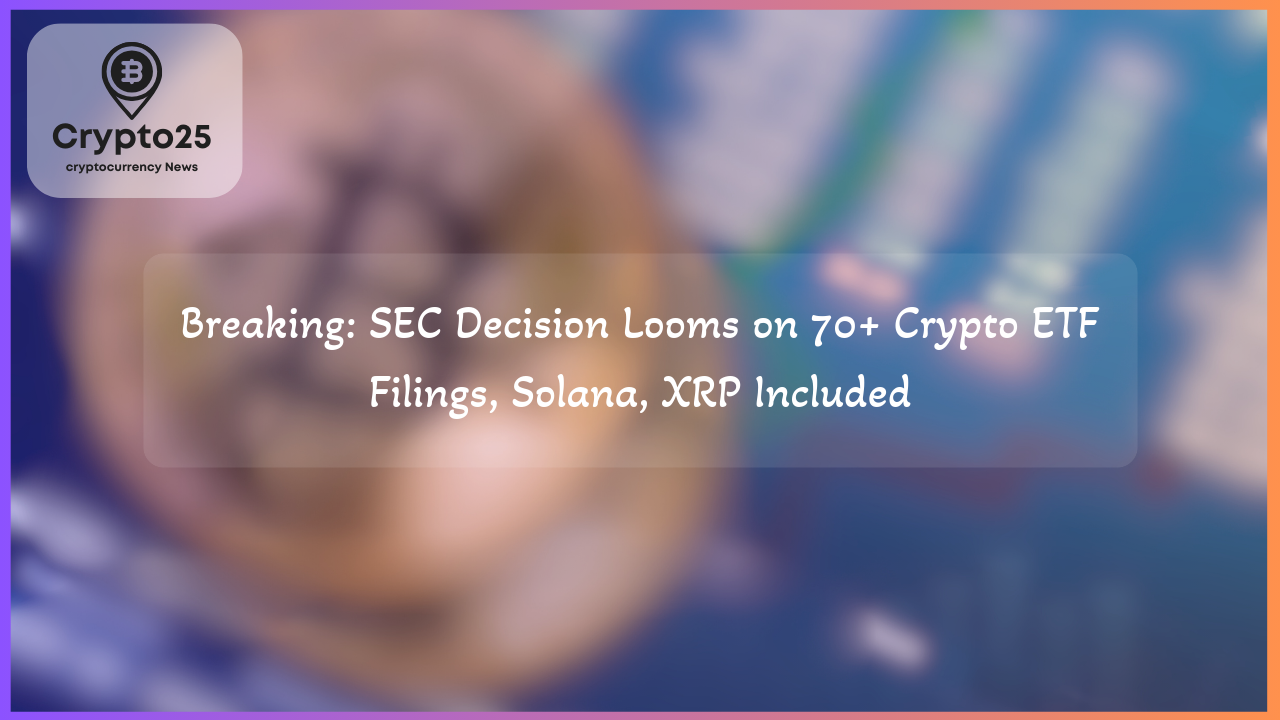
The incoming leadership of the U.S. Securities and Exchange Commission (SEC) brings heightened anticipation for the crypto community, as newly appointed SEC Chair Paul Atkins prepares to oversee a surge of cryptocurrency-related exchange-traded fund (ETF) applications. With 72 crypto ETFs awaiting regulatory approval, 2025 is poised to be a pivotal year for digital asset integration into traditional finance.
### Crypto ETFs Gain Momentum Under Paul Atkins’ Leadership
The crypto industry is abuzz as Paul Atkins takes the helm of the SEC amidst a wave of ETF applications linked to diverse crypto assets, including Dogecoin, Solana, XRP, and newer tokens like the Melania meme coin. Issuers are eager to hear feedback on these proposals, anticipating pivotal decisions that could shape market dynamics. Eric Balchunas, a prominent Bloomberg ETF analyst, has described this influx as heralding “a wild year,” given the rapidly evolving nature of cryptocurrency ETFs. This surge highlights a growing demand among institutional investors to gain exposure to digital assets through regulated, exchange-listed trusts.
Atkins, known for a regulatory approach that emphasizes free markets, is expected to face challenges balancing innovation with investor protection. With the SEC’s prior approval of spot Bitcoin and Ethereum ETFs under the leadership of former Chair Gary Gensler, the focus now shifts to whether other cryptocurrencies will be allowed similar market access. Key questions center on token classifications and whether assets like Solana or XRP meet the necessary criteria to trade as commodities within U.S. markets.
### The Expanding Landscape of Crypto ETF Applications
As of 2025, the SEC’s roster of pending crypto fund applications spans 15 different cryptocurrencies beyond Bitcoin and Ethereum. These include well-established digital assets such as Dogecoin and XRP, as well as emerging ones tied to blockchain ecosystems like Solana. Balchunas noted that the breadth of submissions exemplifies the industry’s determination to diversify offerings to retail and institutional investors alike. Yet regulatory uncertainties could hinder progress, especially for tokens categorized as meme coins or those with limited market histories.
The SEC’s stance on meme coins has been a topic of debate. While the agency clarified earlier this year that it does not classify most meme coins as securities, it refrains from endorsing their inclusion in financial instruments like ETFs. Nonetheless, asset managers are keen to capitalize on the cultural appeal and speculative interest surrounding these tokens. This introduces a fascinating dynamic: where the digital asset economy intersects with traditional regulatory frameworks.
### Challenges and Opportunities for Crypto Regulation in 2025
Paul Atkins’ leadership marks a critical juncture for cryptocurrency regulation. During his previous tenure at the SEC, Atkins advocated for deregulation; however, his latest role will test his ability to navigate an industry eager for clearer guidelines. Analysts predict that Atkins’ decisions could set a precedent for how crypto assets are integrated into mainstream financial markets, particularly ETFs—a domain that offers unique benefits of liquidity, accessibility, and regulatory oversight.
Last year, the SEC signaled progress by approving spot Bitcoin and Ethereum ETFs, which paved the way for broader crypto adoption. However, questions linger about the inclusion of newer assets, such as Solana-based tokens or meme coins tied to social or cultural phenomena. These tokens, while high in speculative interest, may face hurdles when assessed under established financial criteria. Atkins will need to address these complexities while ensuring that innovation is not stifled.
| Title | Details |
|---|---|
| Market Cap | $1.2 Trillion |
The regulatory path ahead is unlikely to be smooth. Approval for high-profile assets like XRP, for instance, may face delays. The SEC has the authority to postpone its final rulings on XRP ETFs until October, signaling a potentially drawn-out review process. Still, anticipation in the crypto industry remains high, with stakeholders optimistic that Atkins’ appointment could usher in a more collaborative regulatory environment.
The stakes are high, as the next decisions on crypto ETFs will not only influence the U.S. market but also global perceptions of regulatory openness toward digital assets. The future of finance may well depend on the balancing act between fostering innovation and safeguarding investor interests—a challenge Paul Atkins and the SEC will navigate in 2025.
